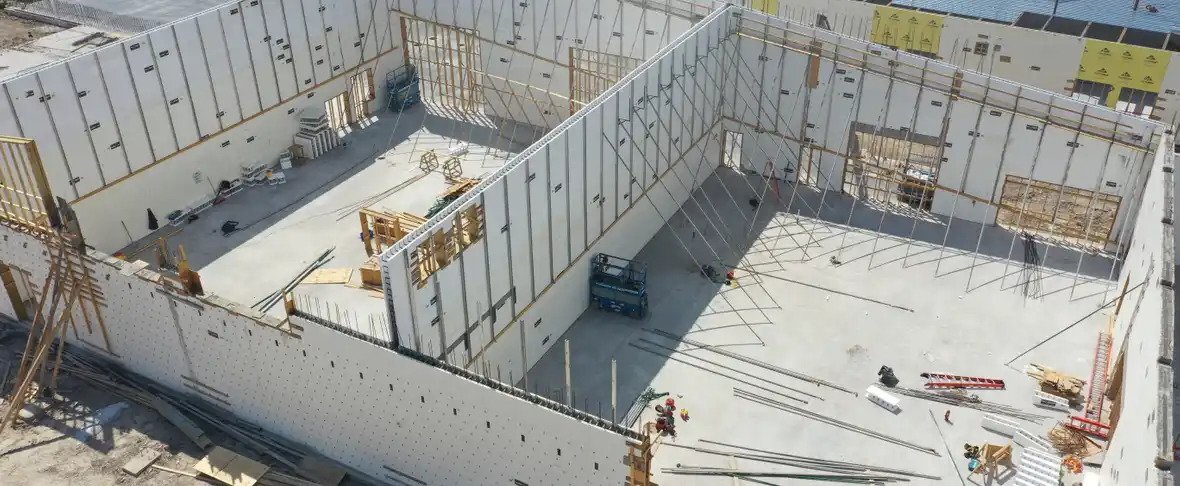
Shear Walls vs. Load Bearing Walls
When constructing a building, ensuring its stability and resilience is critical. Two essential components that play crucial roles in building stability are shear walls and load bearing walls.

Effective Strategies to Insulate Block Walls
Improving the insulation of block walls significantly enhances energy efficiency, comfort, and durability in both residential and commercial spaces. Block walls, often made of concrete masonry units (CMUs), are sturdy but notoriously poor at retaining heat without proper insulation.

How to Design Flood Resistant Basement Walls

Are Poured Basement Walls Better than CMUs for Below-Grade Construction?

The Backbone of Modern Construction: Steel Reinforced Concrete Walls

Improve the Comfort and Health of a Building with Soundproof Exterior Walls
The need to incorporate soundproofing features in the exterior walls of today’s homes and buildings has increased in recent decades. Urbanization, population growth, and an increase in air, rail, and highway traffic all have contributed to a widespread escalation of noise pollution.

How to Insulate Block Walls for Optimal Thermal Efficiency
Want to improve thermal efficiency? Learn how to insulate block walls effectively with the best methods and materials for energy-saving results!

ICF Walls Are Less Expensive Than CMU
Many contractors ask us the same question: Is ICF more expensive than CMU? Here’s why ICF walls are less expensive than CMU and offer better benefits.

What R-Value Do You Need for Basement Walls?
The proper R‑value of basement walls will produce energy-efficient, durable, healthy, and comfortable homes. Learn what R‑value your basement walls should have.

How to Get Energy-Efficient Walls with Insulated Concrete Forms